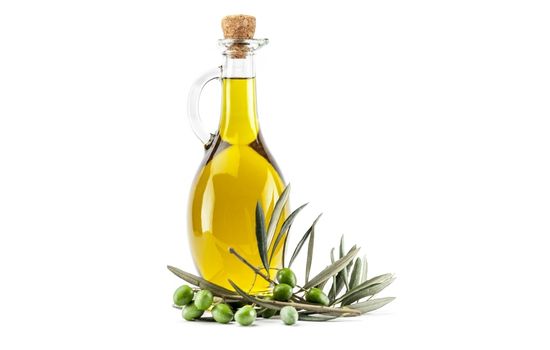
7 Surprising Health Benefits Of Olive Oil
Welcome to Lifestyle Femina | 7 Surprising Health Benefits Of Olive Oil
Olive oil has been part of the Mediterranean diet for centuries and its popularity has only grown with time. While it may still be an acquired taste, the health benefits of olive oil are undeniable. From skin care to gut health, this natural nutrient provides an array of benefits that make it a staple in any kitchen. In this article, we will explore 7 proven benefits of olive oil and how you can incorporate it into your daily diet.
Summary: Health Benefits Of Olive Oil
Olive oil is a monounsaturated fat that is derived from olives. It has been used for both cooking and medicinal purposes for centuries. Some of the potential health benefits of consuming olive oil include:
- Heart health: The monounsaturated fats in olive oil can help to lower cholesterol levels and reduce the risk of heart disease.
- Blood sugar control: Some studies have suggested that consuming olive oil can help to improve insulin sensitivity and control blood sugar levels.
- Anti-inflammatory: Olive oil contains anti-inflammatory compounds that may help to reduce the risk of certain chronic diseases, such as rheumatoid arthritis.
- Cancer prevention: Some studies have suggested that consuming olive oil may reduce the risk of certain types of cancer, such as breast cancer.
- Brain health: Olive oil is a rich source of polyphenols, which are compounds that have been shown to have beneficial effects on brain health, including reducing the risk of dementia and Alzheimer’s disease.
- It is important to note that, as with any food, consuming olive oil in moderation is key to reaping its potential health benefits. It is also recommended to use extra virgin olive oil because it is less processed and retain more of the beneficial compounds.
Overview
There are many benefits of olive oil that have been proven through research. Some of these benefits include reducing the risk of heart disease, stroke, cancer, Alzheimer’s disease, and arthritis. Olive oil is also effective in treating diabetes and high blood pressure. It can also help you lose weight in a healthy way and improve your digestion.
Checkout our list of: 10 Ashwagandha Benefits for Women
History of Olive Oil
The history of olive oil is centuries old. The first recorded use of olive oil was in Mesopotamia, circa 3500 BCE. It was used as fuel for lamps. The early Greeks and Romans used olive oil for cooking and as medicine.
Olive trees were introduced to Spain by the Phoenicians in the 8th century BCE, and to Italy and France in the 5th century BCE. Olive oil became an important export for the Mediterranean region.
In the 11th century, Crusaders brought olive trees back to Europe from the Holy Land. By the 14th century, olive oil production had spread to Portugal, Greece, and other parts of Europe.
Today, olives are grown in many Mediterranean countries, as well as in California, Argentina, Chile, South Africa, and Australia. The majority of the world’s olive oil is produced in Italy, Spain, and Greece.
Also Read: Top 15 Health Benefits of Chia Seeds
Also Read:
Nutritional Facts About Olive Oil
Olive oil is a natural fat obtained from olives (the fruit of Olea europaea; family Oleaceae), a traditional tree crop of the Mediterranean Basin. The oil is produced by pressing whole olives. It is commonly used in cooking, cosmetics, pharmaceuticals, and soaps, and as a fuel for traditional oil lamps.
Olives are grown throughout the Mediterranean region, as well as in many other countries with climates similar to that of the Mediterranean. Olive trees can live for several hundred years, and It can often be passed down from generation to generation.
The olive is one of three core food plants in Mediterranean cuisine; the other two being wheat and grapes. Olive oil has been a staple in the diet of the people of the Mediterranean for thousands of years.
There are many different types of olive oil, but they can broadly be classified into two categories: 1.
- Virgin and
- Extra-virgin.
Virgin olive oils are those that have been cold-pressed from the fruit without the use of chemicals or heat.
Extra-virgin olive oils are a step above virgin olive oils, meaning they have even lower acidity levels and higher levels of monounsaturated fats.
Olive oil is a good source of monounsaturated fats, which are considered to be healthy fats. Monounsaturated fats can help to lower bad cholesterol levels (LDL) and raise good cholesterol levels (HDL). It can also help to reduce inflammation throughout the body.
Olive oil is also a rich source of antioxidants, which can help to protect the body from free radical damage and slow down the aging process. It is also a good source of vitamins E and K, as well as essential fatty acids.
- In terms of calories, 1 tablespoon (14 grams) of olive oil contains 119 calories.
Also Read: Dash Diet Recipes Ideas
7 Health Benefits of Olive Oil
There are many health benefits associated with olive oil. Olive oil is also a rich source of antioxidants, which can help to protect against cell damage and reduce the risk of some chronic diseases such as cancer.
Some other potential health benefits of olive oil include reducing inflammation, improving cognitive function, and preventing bone loss.
Also Read: The Best Fat Burning Cabbage Soup
1. Olive Oil Is Rich in Healthy Monounsaturated Fats
Extra virgin olive oil is rich in monounsaturated fats, which are considered a healthy type of fat. Monounsaturated fats can help to lower cholesterol levels and reduce the risk of heart disease. They can also help to control blood sugar levels and reduce the risk of type 2 diabetes. Olive oil is also a good source of antioxidants, which can protect against cell damage and reduce the risk of chronic diseases such as cancer.
2. Olive Oil Contains Large Amounts of Antioxidants
Olive oil contains large amounts of antioxidants, which are beneficial for overall health. Antioxidants scavenge harmful toxins and byproducts that can damage cells, leading to inflammation. Regular consumption of olive oil has been linked with lower rates of chronic diseases such as heart disease, stroke, and cancer.
Also Read: Do Hydration Multipliers Actually Work? We Investigate
3. Olive Oil Has Strong Anti-Inflammatory Properties
There are many anti-inflammatory agents out there, but olive oil is one of the most effective. That’s because it contains a type of fat called oleic acid, which is a powerful anti-inflammatory. In fact, studies have shown that olive oil can help to reduce inflammation in the body and even protect against inflammatory diseases like arthritis.
Checkout our list of: 10 Negative Side Effects of Ashwagandha
4. Olive Oil May Help Prevent Strokes
A study published in the journal Neurology found that people who consume a Mediterranean diet supplemented with extra-virgin olive oil have a lower risk of stroke.
The study followed over 7,000 people for almost five years. Those who consumed at least two tablespoons of olive oil per day had a 41% lower risk of ischemic stroke compared to those who didn’t consume any olive oil.
The findings suggest that the benefits of the Mediterranean diet are due in part to the consumption of olive oil. Olive oil is a major source of healthy monounsaturated fats, which have been shown to protect against heart disease.
Additionally, olive oil contains antioxidants that may help protect against strokes by reducing inflammation and improving blood vessel function.
Also Read: Amazing Health Benefits of Guava
5. Olive Oil May Fight Alzheimer’s Disease
According to a recent study, olive oil may help fight Alzheimer’s disease.
The study, which was conducted by researchers at the University of Maryland School of Medicine, found that olive oil helps protect the brain from damage caused by inflammation.
Inflammation is thought to play a role in the development of Alzheimer’s disease, and this new research suggests that olive oil may help to prevent or delay the onset of the disease.
The study was conducted in mice, but the findings could have implications for humans as well. Further research is needed to confirm these findings, but this new study provides some promising evidence that olive oil may be beneficial for brain health.
6. Olive Oil May Reduce Type 2 Diabetes Risk
There is strong evidence that olive oil may help to reduce the risk of developing type 2 diabetes. In a large Mediterranean study, people who consumed the most olive oil had a significantly lower risk of developing type 2 diabetes than those who consumed the least (1).
Another study found that replacing other fats with olive oil lowered the risk of type 2 diabetes by up to 30% (2).
Olive oil is high in healthy monounsaturated fats and antioxidants. These nutrients are thought to protect against insulin resistance, a key factor in the development of type 2 diabetes (3, 4).
In addition, olive oil may help to improve blood sugar control and reduce inflammation, both of which are also linked to a lower risk of type 2 diabetes (5, 6).
- If you’re looking to improve your health, adding olive oil to your diet is a good place to start.
Also Read: Is Banana Good for Weight Loss?
7. Olive Oil Can Help Treat Rheumatoid Arthritis
Rheumatoid arthritis is a debilitating condition that can cause immense pain and suffering. Thankfully, there are treatments available that can help lessen the symptoms and improve the quality of life for those afflicted. One such treatment is olive oil.
Olive oil has been shown to be effective in treating rheumatoid arthritis in a number of ways.
First, it helps to reduce inflammation throughout the body. This can lead to less pain and stiffness in the joints, as well as improved overall mobility.
In addition, olive oil also contains a compound called oleocanthal. This substance has been shown to inhibit the production of inflammatory cytokines. By reducing inflammation at the source, oleocanthal can help to further relieve symptoms of rheumatoid arthritis.
These nutrients scavenge harmful toxins and free radicals from the body, helping to protect cells and reduce inflammation. The antioxidant power of olive oil can also help to boost the immune system, making it better able to fight off infection and disease.
- If you suffer from rheumatoid arthritis, incorporating olive oil into your diet may help to ease your symptoms and improve your quality of life. Be sure to speak with your doctor first, however, as olive oil may interact with certain medications.
Also Read: Banana Shake Benefits: Why you should Drink It!
Tips to Use Olive Oil in Cooking
When it comes to cooking, olive oil is a versatile ingredient that can be used in a variety of ways. Here are some tips on how to use olive oil when cooking:
- For sautéing or stir-frying, heat the pan before adding olive oil. This will help to prevent the oil from burning.
- When baking, substitute olive oil for other oils or butter in recipes. This will add a unique flavor to your baked goods.
- Use olive oil as a healthy alternative to butter or margarine when spreading on bread or toast.
- To add flavor to salads and other dishes, drizzle olive oil over them just before serving.
Olive oil is a healthy and flavorful addition to any meal. With these tips, you can easily incorporate it into your cooking for delicious results.
Recipes with Olive Oil
There are countless recipes that call for olive oil, and for good reason. Not only does it add a delicious flavor to food, but it also has many proven health benefits.
Some of the most popular recipes that include olive oil are Mediterranean dishes like pasta primavera, ratatouille, and Greek salad. But you can also use olive oil in more Americanized dishes like chicken or shrimp scampi, garlic bread, and roasted vegetables.
Not only is olive oil a healthy cooking oil, but it can also be used in place of other unhealthy fats like butter and margarine.
- So if you’re looking to make your favorite recipes a little healthier, try substituting olive oil the next time you cook.
Also Read: Is Banana Good for Weight Loss?
Conclusion
Olive oil is a staple in many diets due to its powerful health benefits and variety of uses. Whether you’re using it for cooking, skin care, or as an all-natural remedy for various ailments, olive oil offers numerous positive effects that can help improve your overall well-being. We hope this article has shed some light on the proven benefits of olive oil and given you one more essential tool to add to your healthy lifestyle arsenal.
If you don’t see what you’re looking for here, reach out to us at [email protected].
FAQ’s on Benefits of Olive Oil
Regular consumption of olive oil has been associated with a number of health benefits, including a reduced risk of heart disease and stroke, lower blood pressure, and a reduced risk of some types of cancer.
Olive oil can be used in cooking or as a salad dressing. It is also a popular ingredient in many Mediterranean dishes.
The exact amount of olive oil you should consume each day depends on a number of factors, including your age, health status, and activity level. However, most experts recommend consuming 1-2 tablespoons (15-30ml) of olive oil per day.























[…] 7 Surprising Health Benefits Of Olive Oil […]
[…] Also Read: Surprising Health Benefits Of Olive Oil […]
[…] Checkout our list of: 7 Surprising Health Benefits Of Olive Oil […]
[…] Also Read: Surprising Health Benefits Of Olive Oil […]
[…] Also Read: 7 Surprising Health Benefits Of Olive Oil […]
[…] Also Read: 7 Surprising Health Benefits Of Olive Oil […]